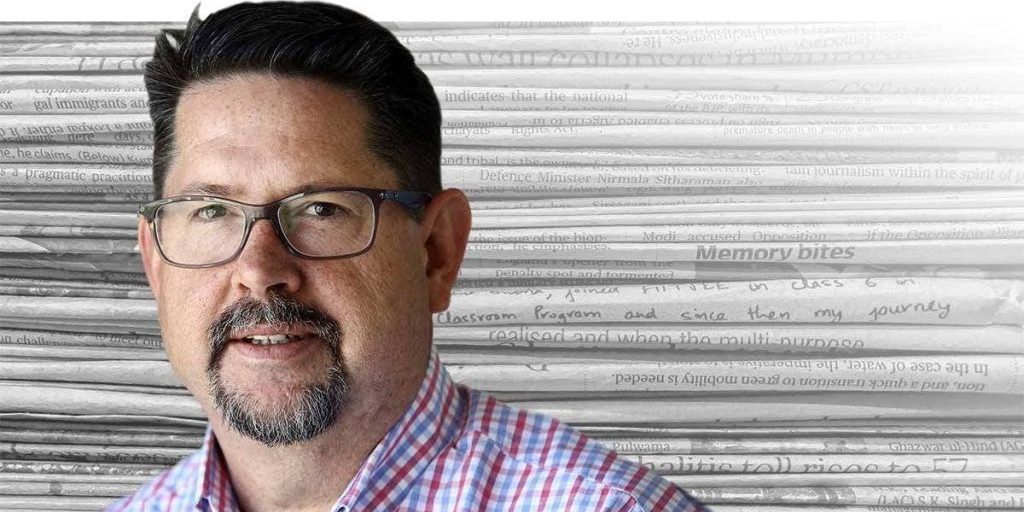SANEF concerned about allegedly illegal surveillance and interception of News24 journalist by the Crime Intelligence (CI) division.

The South African National Editors’ Forum (SANEF) is deeply concerned that a News24 journalist has been allegedly subject to illegal surveillance and interception from the Crime Intelligence (CI) division which is a worrying trend, internationally, of targeting journalists to curtail factual and honest news coverage.
News24 informed SANEF that their lawyer had sent a letter to the acting head of the CI Lieutenant-General Yolisa Mokgabudi, demanding that “those within Crime Intelligence participating in these activities, immediately be ordered to cease all further unlawful interception of News24 journalists’ communication, their surveillance and/or general intimidation”.
According to News24 its investigative journalist Jeff Wicks has allegedly been “followed and his communications” allegedly intercepted due to his coverage of the “internal turf” struggles inside the CI. They allege that other journalists may also be under surveillance.
SANEF is concerned that emergency pandemic laws, new spy technologies, and the lockdown itself have exposed journalists to even greater threats of surveillance and harassment. The threat is amplified when it comes to investigative reporters around the world who have been forced to tighten their digital safety habits, out of concern that local and international intelligence units are targeting them.
SANEF is also aware that the media house has sent a letter to Judge Bess Nkabinde, who is the designated judge charged with authorising legal interceptions in terms of the Regulation of Interception and Communication Act (RICA).
We reiterate our previous concerns on surveillance of journalists as such targeting to establish sources of information has a chilling impact on media freedom. It also has consequences for whistle-blowers who often are the first point of contact for revealing information of public importance including corrupt and criminal activities inside government and other state institutions.
SANEF again calls for transparency and the assurance from CI and all intelligence agencies to stop targeting journalists in any surveillance. We condemn the bulk interception of journalists as journalists’ sources must be protected, and journalists must be notified after being bugged.
In February this year the Constitutional Court upheld a challenge by non-profit investigative newsroom amaBhungane that questioned the constitutionality of parts of the state’s surveillance architecture. The decision affirmed the need to guard against state agencies abusing their power and intruding on ordinary persons’ communications without good cause.
AmaBhungane launched a high court challenge in 2017 after it emerged that phone calls between its managing partner Sam Sole and a prosecutor involved in the investigation of former president Jacob Zuma had been intercepted.
Surveillance was already pervasive before the pandemic, but we are even more concerned that certain kinds of surveillance are being legitimised and legalised because of the pandemic. This is because almost all journalists are spending a lot more time online, which means some of the reporting we used to do face to face, we’re doing it digitally whether through Zoom, which is not end-to-end encrypted, and even just phone calls with sources.
We note that the lockdown has forced many reporters to migrate their working model from face-to-face to digital platforms: that the sheer volume of their work in the digital space has increased the threat that their communication with sources might be intercepted. In many cases, they might never know that breaches happened, according to digital safety specialists.
SANEF wishes to warn journalists and media houses that they should not allow the apparent ubiquity of online threats to have a chilling effect on their investigations, by using basic digital hygiene for most investigations, and by upgrading to advanced security and low-tech methods for stories that they pre-identify as high risk.
While not every story requires burner phones and end-to-end encryption, but the Global Investigative Journalism Network says the heightened hacking threat posed by pandemic conditions means that — “like flossing your teeth” — certain hygiene principles are no longer optional, like using password managers, always updating apps, using two-factor authentication, and recognizing that phones represent the primary vulnerability.
Note to Editors: The South African National Editors’ Forum (SANEF) is a non-profit organisation whose members are editors, senior journalists and journalism trainers from all areas of the South African media. We are committed to championing South Africa’s hard-won freedom of expression and promoting quality, ethics and diversity in the South African media. We promote excellence in journalism through fighting for media freedom, writing policy submissions, research and education and training programmes. SANEF is not a union.
For more information please contact:
Sbu Ngalwa – SANEF Chairperson (073) 404-1415
Adriaan Basson – SANEF Deputy Chairperson (082) 562-2113
Mahlatse Mahlase – Secretary General (083) 399-2852
Nwabisa Makunga – Treasurer (082) 555-1972
Mary Papayya – SANEF Media Freedom Chair (082) 379-4957
Asanda Ngoasheng – Western Cape Convenor – 082 610 9374
Judy Sandison – SANEF KZN Convenor (082) 571-3334
Katy Katopodis – SANEF Gauteng Convenor (082) 805-7022
Chiara Carter – SANEF Eastern Cape Convenor (082) 659-9162
Kate Skinner – SANEF Executive Director – (082) 926-6404
Twitter: @SAEditorsForum
Email: [email protected] Website: www.sanef.org.za



